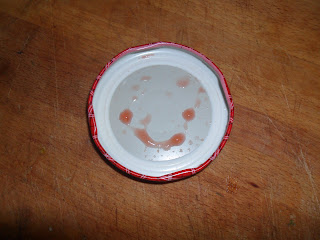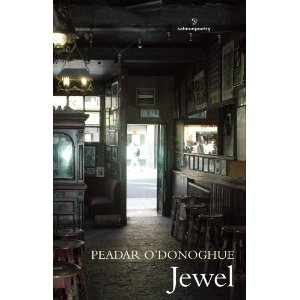Last week Catherine McNamara invited me to
take part in The Next Big Thing. Catherine is a novelist and short story writer
whose collection 'Pelt and Other Stories' is coming out with Indigo Dreams
Publishing in 2013. Please take some time to peruse Cat's sites.
“The Next Big Thing is a great way to
network with fellow writers and to find out a bit more about what they're
working on. The idea is fairly simple. You, the writer, answer a standard(ish)
set of 10 questions on your blog one week then ask up to five other authors
(whose work you like and you think might be The Next Big Thing) to answer the
same questions the next week.”
What
is the title of your next book?
I’m currently working on a novel, but I’m
too superstitious to talk about that before it’s completed, so I’m going to tell
you about the collected short fiction I have out on submission: ‘Songs from a
Room’.
Where
did the idea for the book come from?
I had been putting together a different
group of stories, pieces that had been listed in competitions such as the 'Sean
O’ Faolain International Short Story Prize', or published individually, with a
mind to submitting to the Scott Prize. Those were stories that had been written
over a number of years and though some were linked, and all evidenced a
continuation of the same themes, I felt I could write something much stronger,
more like a novel in scope, but with the variety and intensity that only short
stories can offer. I wanted to push the form. Reportage, social media, poetry,
folk songs, and hymns evidence some other forms I wanted to play with. So I put
all my ideas into a notebook, with mail shots and graphics and clippings and newspaper
articles and all manner of things that were pushing me to write about them and
had been pushing at me for a long time, and the collection took shape.
What
actors would you choose to play the part of your characters in a movie
rendition?
An international ensemble is needed with
lots of interesting ladies and gents of all ages. There are some stunts to take
into consideration when casting, but I think Phoebe Tonkins would be ace as Psyche,
and I’d love Dominic West to play the 'Man Who Talks to Books', and Jemaine
Clement and Bret McKenzie would have to star too. Caroline Gage would play
herself. A cameo from Leonard Cohen is definitely in order. Plus a few, as they say in
Auckland, ‘unknowens’.
What
is the one sentence synopsis of your book?
Listen with your eyes.
Will
your book be self-published or published by an agency?
Ideally, ‘Songs from a Room’ will be
published by the small press of my choice, renowned for producing beautiful and
inspiring books, but I’m a creative thinker and anything’s possible. One idea I had was to hire actors to read the stories and sell the collection as an audio work.
How
long did it take you to write the first draft of your manuscript?
Because I planned the whole collection out
in advance, the first draft took about four months.
I took a gamble entering untried stories into
a major first collection competition. That said, I knew these stories were
better than any others I’d written; when push came to shove, I wasn’t prepared
to patch-up old work and force links to pad out the few excellent pieces I had,
or send sub-standard stories out to represent me. I wanted to create a piece of
art. I think I have.
The title story has just been accepted for
publication in the New Zealand journal Brief, along with another from the
collection, and the second story, ‘The Angel of the Warmth’ made the shortlist
of the Bristol Prize, earlier this year, so it looks like the gamble’s paying
off in part at least.
What
other books would you compare ‘Songs from a Room’ within the genres?
I’ve done my best to defy comparison on the
whole. But just prior to writing this collection, I read and was impressed by the work of Te Awhina Arahanga, Nathan Englander, David Down, Eru J. Hart, Paula Morris, Peter Stamm, Phil Kawana, and I am a fan of Annie Proulx, Katherine Mansfield, Angela Carter, Italo Calvino, Ma Jian, and Nadine Gordimer, and if I could
inhabit a space somewhere between them, I’d be very happy indeed.
Who
or what inspired you to write the book?
Moose. But mostly the idea that everyone has
a soundtrack: the break-up song, the clubbing song, the funeral song, etc. Put
together Jason Mraz’s ‘I’m Yours’, Cat Stevens’ ‘First Cut’, and McAlmont andButler’s ‘Yes’, and you have the story arc of a first relationship, but what
interested me was what other kinds of music would make those life events just
as memorable.
I’ve always been obsessed by structure, so
I borrowed the framework for the collection from Leonard Cohen’s brilliant music
album of the same name. The songs in this album also inspired a number of the
stories, and Mr Cohen was gracious enough to give me permission to incorporate
some of his lyrics in those stories. Each story riffs off its sister, building to what I hope will be a collection as memorable as your
favourite album.
What
else about the book might pique a reader's interest?
People who love concept albums may also
like this. Interest alert all criminology undergrads, I
believe I have penned the first story depicting yarn bombing.
"Now
it is time to pass the baton and introduce a few writer friends (and great
bloggers) who will take part in The Next Big Thing on Wednesday 19th December."
Let me introduce:











